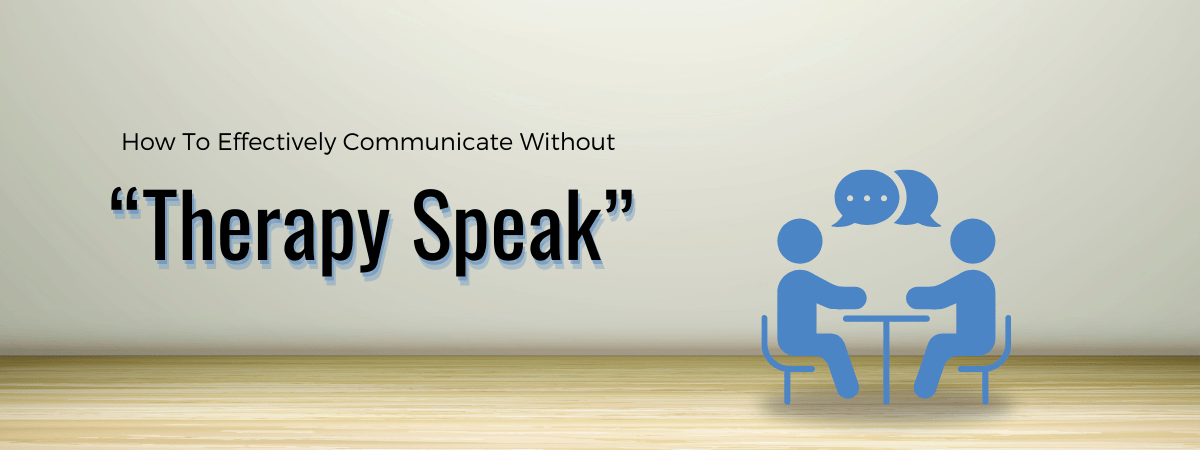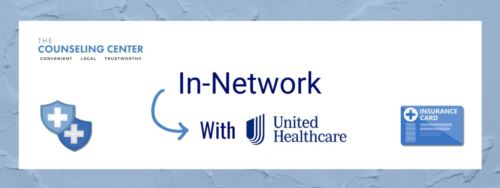

Why You Should Stay Away From Therapy Speak In Regular Conversations
There’s been an increased emphasis on mental health in recent times, bringing previously taboo topics into the open. While this shift is praiseworthy, it has also begun a complication that can obstruct genuine conversation: "therapy speak."
This kind of language is overused, misunderstood, and taken beyond its original intent by unqualified individuals in routine situations and on social media sites like TikTok, Facebook, and more. Learn more about what what therapy speak consists of, how it affects people, and find tips on communicating about mental health treatment more effectively.
What Is Therapy Speak?
Therapy speak is a reference to utilizing psychological terms, often borrowed from treatment sessions, in casual conversations. Certain words and phrases have made their way out of professional medical environments and become mainstream in headlines, hashtags, and, sadly, heated arguments between family.
When these terms are overused or misapplied in everyday discourse, they can turn into a way to avoid deeper dialogue and oversimplify complicated emotions. They may even halt valuable interactions with lingering negative results, as people with no background or credentials might improperly diagnose themselves or loved ones.
Here are several cases of therapy speak:
- “I’m setting a boundary,”
- “That’s triggering for me,”
- “Are you doing the work?”
- “Is it a safe space?”
- “Maybe you’re processing your trauma.”
While these phrases can be valuable within a clinical setting at an accredited facility like The Counseling Center, they are typically unsuitable in day-to-day life.
Therapy Speak Can Diminish Authentic Conversation
At TCC, we encourage incorporating mental health practices into daily life. Even so, we also recognize the potential drawbacks of utilizing professional or jargon-heavy language in daily life. Engaging in therapy speak can diminish the genuine intent of discussions, putting up barriers instead of cultivating connection and understanding. We’ve noticed people commonly turn to therapy speak as a defense mechanism.
There may be a feeling that therapy speak can’t be challenged because it references what you could hear at a mental health facility. Yet constructive communication needs empathy, shared understanding, and active listening.
The Impact of Therapy Speak
1. Eroding Authentic Connections
Relying on therapy speak can make interactions appear impersonal or distant, eroding the emotional warmth that nurtures real connection. It may “therapize” family interactions, transforming significant candid discourse into what may sound like a 20-second reel created by a therapist on TikTok.
For instance, exclaiming to a loved one, “I have to hold space for myself right now,” might sound cold and distant compared to merely saying, “I’m feeling overwhelmed and need a bit of time to process.”
2. Misunderstanding and Misuse
Therapeutic phrases have specific meanings within professional contexts. Improperly using phrases like ”narcissistic” or “bipolar” not only trivializes their real intent but might also continue stigma around mental health conditions. Some seek to label others instead of listening and making time for authentic dialogue.
The Counseling Center welcomes carefully considered language that respects the significance of words employed in clinical settings, ensuring they are not misused or diminished in day-to-day interactions. We’ve found that therapy speak often sows confusion, with numerous phrases employed inaccurately. This language can function as a shield to guard us from guilt, obligation, or judgment.
3. Evading Accountability
While concepts like boundaries and self-care are vital, therapy speak is often misemployed to shift responsibility or circumvent accountability. For example, declaring, “I’m protecting my boundaries,” to explain hurtful behavior can counteract the truth and trust required in strong relationships. There are always fresh terms to excuse selfish or even hostile behaviors. The word “boundaries” has become specifically irksome to mental health therapists.
You now hear therapeutic terms employed when people simply don’t wish to do something. With all the arguments that follow, you may question whether your “boundary” has more importance than your loving relationship.
How to Effectively Communicate Without Therapy Speak
We believe worthwhile communication doesn’t require clinical terminology. Really, it’s about being clear, kind, and honest. Our counselors have some helpful tips:
1. Express Yourself From the Heart
Concentrate on how you feel rather than relying on buzzwords when communicating emotions. For example:
- As opposed to: “You’re gaslighting me.”
- Try: “Whenever you say that, it makes me feel like my viewpoint isn’t being acknowledged.”
2. Prioritize Understanding
Try to listen actively rather than label behavior. Expressions like “Help me see where you’re coming from” encourage productive communication.
3. Be Mindful of Your Audience
Keep in mind that not every individual is knowledgeable of professional terms. Choosing simple, easy-to-understand language ensures your message resonates more effectively.
4. Use Boundaries Thoughtfully
Boundaries are essential, but they should be conveyed carefully. Instead of: “I’m setting a boundary.” Try: “I need to step away from this discussion for now so I can think clearly.”
Therapy offers tools, not jargon-heavy scripts. Counselors at TCC regularly reflect on how you’re applying what you’ve learned to ensure it enhances, rather than diminishes, your relationships.
How The Counseling Center Promotes Better Communication
At The Counseling Center, we aim to empower individuals with the skills they need to manage their mental health journey while building healthier relationships. Our programs include:
- Individual Therapy: One-on-one sessions to build self-understanding and improve emotional intelligence.
- Family and Couples Therapy: Helping families and partners communicate more beneficially and work through disputes constructively.
- Group Therapy: Providing a safe space for authentic communication in a nurturing setting. Our therapists emphasize helpful, real-life applications of therapeutic ideas, ensuring you can engage meaningfully with others without falling back on jargon.
Find Professional Mental Health Support Today
If you’re ready to strengthen your self-awareness and improve your relationships, we’re standing by to help. Find out more about our intensive outpatient and outpatient services. If you need immediate help, please reach out to our 24-hour hotline at 833-248-6271. Together, we can equip you to communicate with clarity, empathy, and purpose—without compromising who you are.



